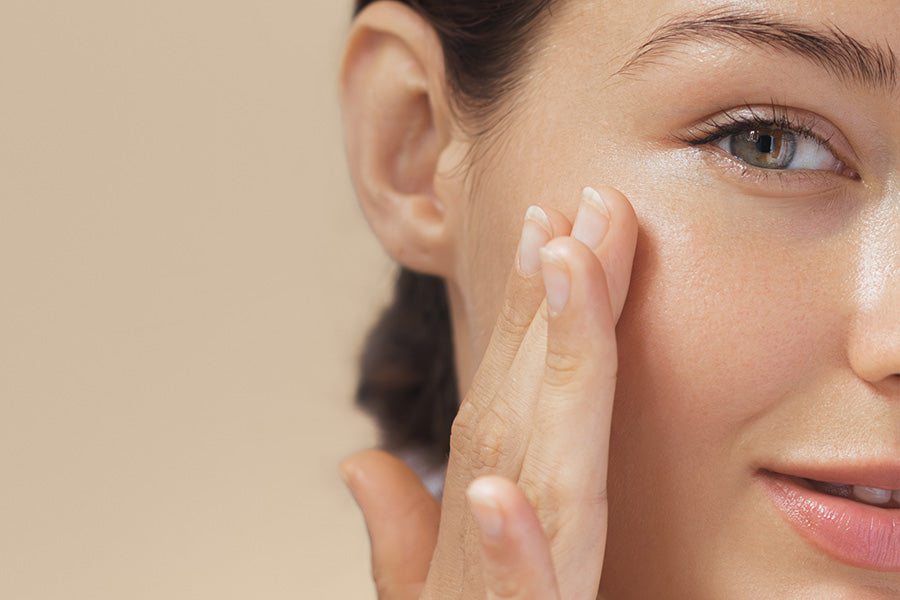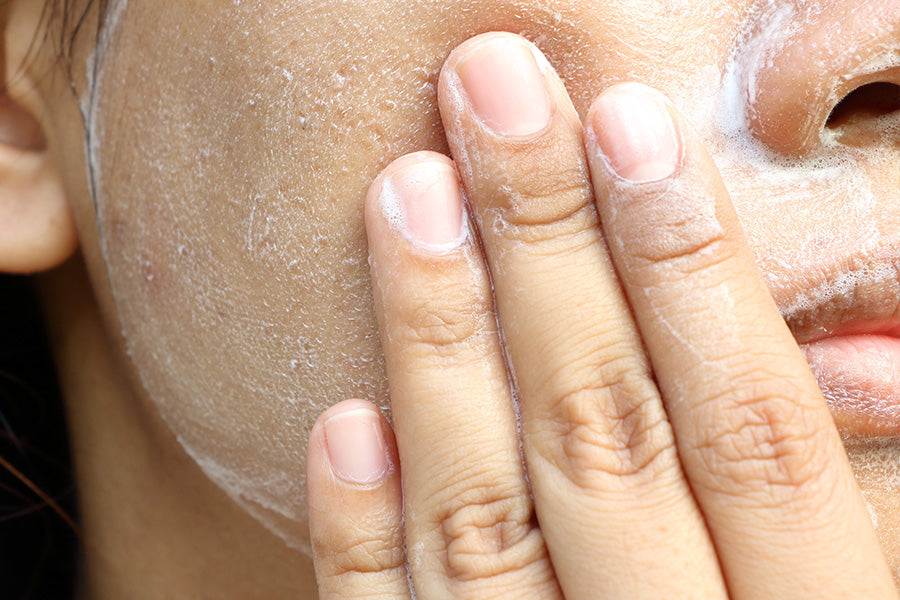How to Restore Damaged Skin: A Complete Guide

When our skin is damaged, it can affect how we look and feel. The good news is, with the right care and ingredients, you can repair and restore your skin's natural barrier. In this guide, we'll explore the signs of damaged skin, how damage occurs, and how to fix it with nourishing ingredients.
Signs of Damaged Skin
Damaged skin often shows through a range of symptoms, including:
- Dryness and flakiness: The skin loses its moisture barrier, making it prone to peeling and cracking.
- Redness and irritation: The skin may become inflamed and appear red or feel itchy.
- Tightness: The skin feels uncomfortable, tight, and less supple.
- Increased sensitivity: Skin reacts negatively to products or environmental factors that once had little to no effect.
- Breakouts: When the skin’s barrier is compromised, it can become more prone to breakouts and blemishes.
How Skin Damage Happens
Several factors contribute to skin damage:
- Environmental Stress: Pollution, harsh weather conditions, and UV rays can weaken the skin’s protective barrier over time, leading to dehydration and damage.
- Over-exfoliation: Too many abrasive scrubs or strong acids can strip the skin of its natural oils, leaving it vulnerable.
- Lack of Moisture: Without proper hydration, the skin becomes more susceptible to dryness and irritation, weakening its defense mechanisms.
- Aging: As we age, the skin produces less collagen and elastin, making it thinner and less resilient to damage.
- Poor Skincare Routine: Inconsistent skincare practices or using the wrong products can disrupt the skin's natural balance.
How to Fix Damaged Skin
Restoring damaged skin requires gentle care and the right ingredients to help rebuild its protective barrier. Here are some essential steps to bring your skin back to life:
1. Hydrate with Hyaluronic Acid
Hyaluronic acid is a moisture-binding ingredient that helps restore hydration in the skin, making it look plumper and more supple. Look for products like the Phoenix Serum that contain hyaluronic acid to deeply moisturize your skin.
2. Strengthen with Niacinamide
Niacinamide (Vitamin B3) is known for its ability to strengthen the skin's barrier and reduce inflammation. It also helps regulate oil production, making it an excellent choice for restoring balance to damaged skin.
3. Soothe with Bakuchiol
Bakuchiol is a plant-based alternative to retinol, offering gentle yet effective anti-aging benefits without irritation. It promotes cell turnover, helping to heal damaged skin and reveal a smoother, healthier surface.
4. Repair with Antioxidants
Antioxidants like Vitamin C help protect the skin from environmental stressors and free radicals that cause damage. The Agave Clean Cleanser, with Vitamin C and Agave Americana Leaf Extract, gently cleanses and restores radiance to damaged skin.
5. Moisturize with Mango Seed Butter
Mango seed butter is an excellent emollient for deep hydration that softens the skin and locks in moisture. Moisturizers like the Desert Rain Light Moisturizer can help repair the skin barrier and restore its natural texture.
Frequently Asked Questions (FAQ)
Q: How long does it take to repair damaged skin?
A: The time it takes to restore damaged skin varies depending on the severity of the damage and the consistency of your skincare routine. Generally, with regular use of the right products and proper care, you can start seeing improvements in 2 to 4 weeks. Full recovery may take several months, especially for deeper damage.
Q: Can over-exfoliation permanently damage my skin?
A: Over-exfoliation can temporarily damage your skin’s barrier, leading to dryness, irritation, and increased sensitivity. Fortunately, with proper care, the skin can repair itself over time. To avoid further damage, reduce the frequency of exfoliation and focus on hydration and barrier-strengthening ingredients like niacinamide and hyaluronic acid.
Q: What is the best way to prevent future skin damage?
A: To prevent skin damage, it’s essential to maintain a consistent skincare routine that includes gentle cleansing, hydration, and protection. Daily use of sunscreen helps shield the skin from harmful UV rays while incorporating antioxidants like Vitamin C, which protects against environmental stressors. Avoid harsh products and ensure your skin remains well-moisturized to strengthen its barrier.
Restoring damaged skin requires patience, care, and the right products. You can repair and rebuild your skin's protective barrier by incorporating nourishing ingredients such as hyaluronic acid, niacinamide, bakuchiol, and antioxidants. With consistency, your skin will look healthier, feel stronger, and glow from within.





